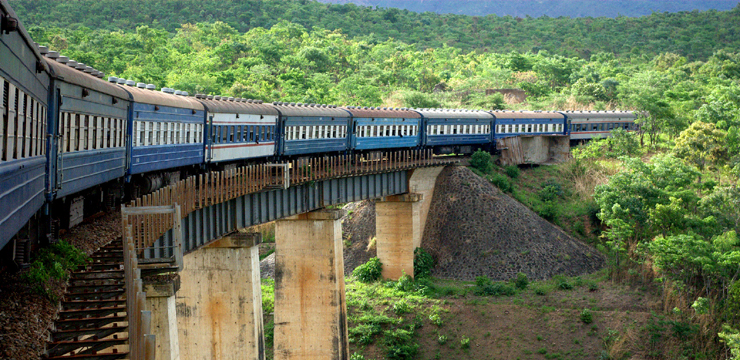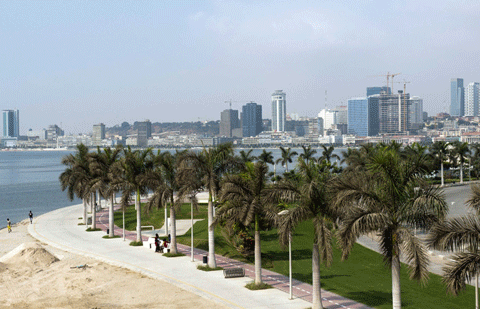
Taking stock
Updated: 2014-05-02 09:24
By Li Lianxing in Nairobi (China Daily Africa)
Comments Print Mail Large Medium Small

China's economic slowdown prompts debate on consequences for Africa
The challenge for China to maintain GDP growth of about 7 percent has exercised minds worldwide over the past two or three years, and in Africa concerns about lower figures boil down to the fact that many of the continent's economic hopes are hitched to those of China.
Robert Rotberg, founding director of Harvard Kennedy School's program on intrastate conflict, has said that "as China goes, so goes Africa. If the Chinese economy continues to cool, the raw material and commodity exporters of Africa will suffer correspondingly. Neither American nor European buyers will be able to replace Chinese purchases."
The Commercial Bank of Africa says a slowing Chinese economy will result in falling foreign currency income in some African countries heavily dependent on commodity exports, and also bring currency depreciation.
Africa Alliance, an investment bank, says that in the first three months of this year Zambia's currency depreciated 9 percent, Ghana's currency by 7 percent, and Nigeria's and Tanzania's currencies by 3 percent.
But Xue Xiaoming, a Chinese businessman who has been doing business in Africa for more than 15 years and is now vice-chairman of the Nigerian Chinese Chamber of Industry and Commerce in Lagos, says he remains optimistic.
"Nigeria's economy has performed very well in recent years and its economy has surpassed South Africa's as the No 1 in Africa. And Chinese businesses have done very well for many years, provided you were in the right industry."
He has received many inquiries from China about doing business or investing in Nigeria or other parts of Africa, he says.
"There is change in the air, but I don't think that's such a bad thing."
|
There are a large number of Africans doing business in the small commodities center in Yiwu, Zhejiang province. Bilateral trade between China and Africa has increased rapidly in recent years. Cui Xinyu / Xinhua |
Unlike previously, when two-digit increases in GDP were routine, the focus is now on the quality of growth, rather than its speed. Premier Li Keqiang has said that there can be flexibility in GDP growth targets, the main thing being to ensure that jobs are protected, employment grows and people's incomes rise.
"We are not preoccupied with GDP growth. The growth that we want is one that brings real benefits to the people, helps raise the quality and efficiency of economic development and contributes to energy conservation and environmental protection."
Li made the comments during the annual session of the national legislature in March. Growth during the first quarter of this year was 7.4 percent, the lowest in 18 months.
But figures on services and consumption are promising, pointing to continued successful economic restructuring and upgrading to offset downward pressure on growth.
The National Bureau of Statistics says the service sector contributed 49 percent of growth in the first quarter, an increase of 1.1 percentage points on the corresponding period last year. The figure was 4.1 percentage points higher than for manufacturing.
The value of imports and exports fell 1 percent compared with the corresponding period last year, to $966 billion.
Sheng Laiyun, a spokesman for the Bureau of Statistics, says: "Even though it's too early to say the Chinese economy has transformed from a manufacturing-driven one to a service-driven one, or from being investment-driven to consumption-driven, change is indeed happening, and is becoming more obvious."
There are fears that a slowing economy will hobble Africa's development, heavily dependent on China's consumption of raw materials and natural resources, and that ensuing problems could hamper growth in fields such as finance or manufacturing.
Shilan Shah, an economist specializing in Africa with Capital Economics Ltd in London, says it is not so much a slowdown in Chinese growth that could affect Africa as the changing drivers of Chinese growth.
"Looking ahead, growth in China is likely to be driven more by consumer spending and less by investment. This will curb its demand for commodities, which in turn is likely to weigh on growth in parts of Africa. In particular, demand for industrial metals, used extensively in construction, is likely to be hit especially hard as China's property boom cools."
This is a serious concern for Zambia, a big producer of copper; South Africa, a big exporter of minerals; and Mozambique, an exporter of aluminum, he says.







